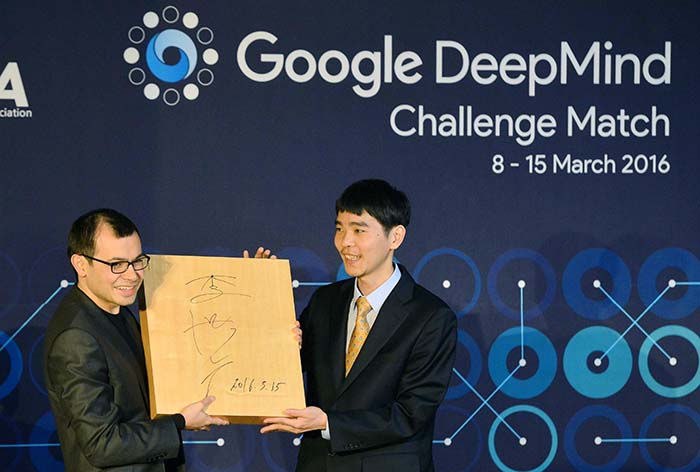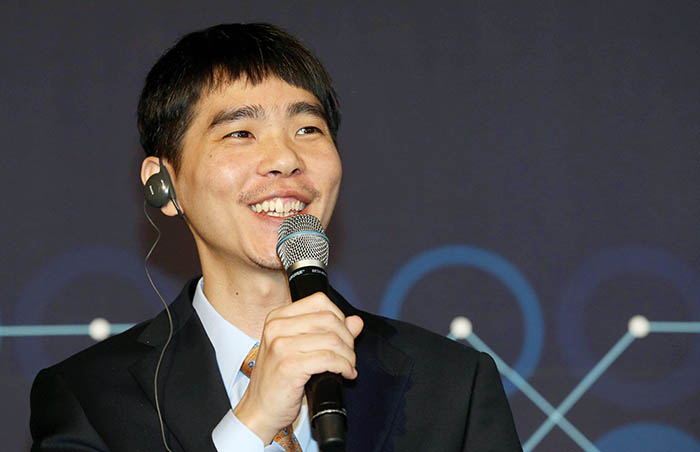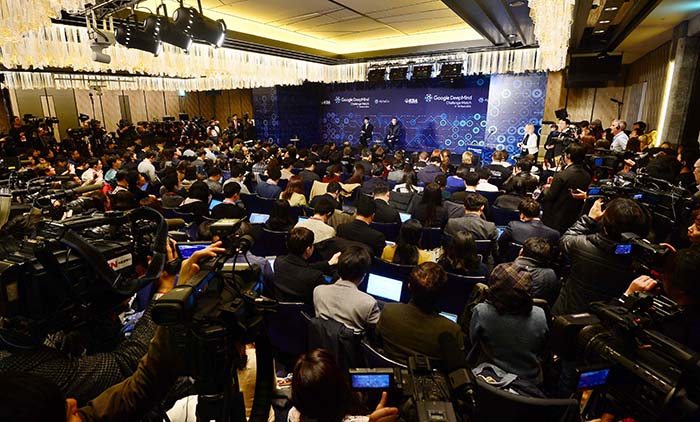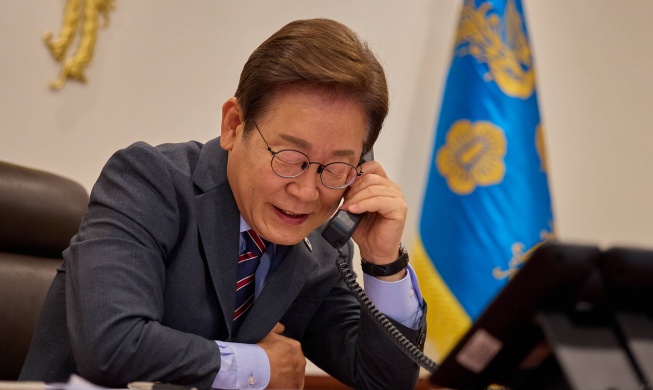
Google DeepMind founder Demis Hassabis (left) and go grandmaster Lee Sedol pose for a picture on March 15. They hold the go board used in the fifth and final game between Lee and the company's computer program AlphaGo.
Five games, one win and four losses.
This is the record of go grandmaster Lee Sedol and is representative of humanity's score against the artificially intelligent computer program AlphaGo.
The five go games notified the world that artificial intelligence is surpassing humans in some regards, and the impact was huge.
The go matches on which the entire world's interest focused have produced a chain of articles that report more than just the game results. They ruminate on the present and the future of AI, and even express vague concerns about a dark future where AI rules over humans, a world often described in science fiction.
However, most observers weren't too negative about the match. The one and only win against the computer program, and the final game after that win, were a stage to prove human creativity, willpower and taste for challenges.
Most go and AI experts before the match foresaw that a dominant human would win. The number of possible moves in a go game is about 10 to the power of 170, so the most logical, mathematic analysis can't always guarantee the best or winning move. This is why it wasn't assumed that the computer program would win against a human opponent armed with his intuition, based on his experience.
The first game was a shocking defeat for the human. The computer program even won the second and third games, showing off its "intelligent" technology, whose level of development was much higher than people assumed. People then bet on AlphaGo winning the fourth and fifth games, too.

Go superstar Lee Sedol talks about the match against the computer program AlphaGo and smiles during the press conference after the end of the 'go game of the century' on March 15.
Lee, however, didn't give up. With his strong longing for a win, he finally caused AlphaGo to resign in the fourth game. Lee's win was very much unexpected and all the more valuable, since it was achieved after the program had been getting stronger game after game through self-learning.
Demis Hassabis, the developer of AlphaGo and founder of Google DeepMind, said, "AlphaGo made a mistake." He applauded Lee who only by his fourth game against the computer program was able to exploit AlphaGo's vulnerabilities.

Reporters attend the press conference after the five games between Lee Sedol and the AlphaGo computer program. The human vs. AI go matches gained huge attention worldwide.
Lee chose to go for a challenge instead of an easy win for the final game. He requested that he play black in the final game, giving himself a slight disadvantage. The game was tight. It finally finished after 280 moves and the computer was driven into a corner by the countdown clock, unlike in previous games. The go grandmaster lost, but only by one and a half points.
"I feel sorry that the final game ended like this. I wanted it to end well,” said Lee during a post-game interview. "Enjoying the game itself is at the very heart of go, which, to me, hasn't been possible for a very long time. This time, however, I really enjoyed the match against AlphaGo."
By Jeon Han, Chang Iou-chung
Korea.net Staff Writers
Photos: Yonhap News
hanjeon@korea.kr
Most popular
- Military discharge sets stage for reunion of all 7 BTS members
- BTS to mark 12th anniversary of debut with 2-week festival
- Lee Jae-myung officially sworn in as nation's 21st president
- Presidents Lee, Trump discuss tariff deal in first phone talks
- President's 1st executive order is launch of economic task force
